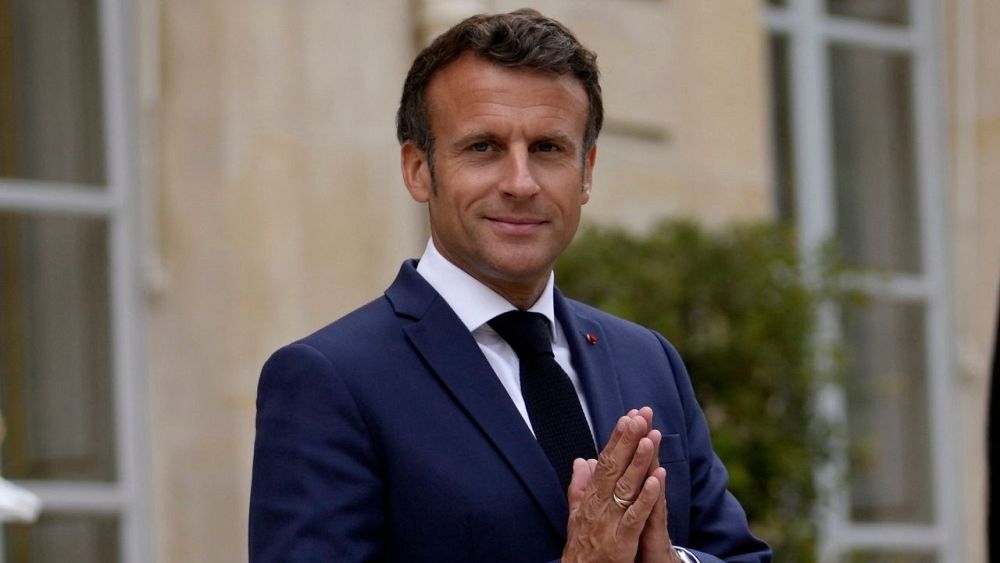[ad_1]
Elliot Ziwira — Senior Writer
Today, Zimbabweans, and, indeed, all Africans, converge across the Motherland to speak with one voice against the illegal economic sanctions imposed on Zimbabwe, under the theme “Friend to All, Enemy to None: Forging ahead and Enhancing Innovation and Productivity in Adversity of Sanctions”.
Zimbabwe has always been a friend to all, forging everlasting relations for the common good, even in the face of challenges.
This October, therefore, Africans, led by SADC, take cognisance of how in a wealthy country thousands of kilometres away, a parliament — both lower and upper Houses, at the instigation of Big Brother, met to decide citizens of Zimbabwe’s fate.
Not that it was or is new for the supremacist Big Brother to decide on behalf of Zimbabweans, no!
In a scientific study titled “Politics of sanctions: Impact of US and EU sanctions on the rights and well-being of Zimbabweans”, published in 2015, Chidiebere C Ogbonna, an academic, researcher, writer and peace facilitator, observes that Zimbabwe has “been sanctioned in six sanction episodes: 1966, 2002, 2003, 2005, 2008 and 2009”.
Therefore, Zimbabwe is “one of the most sanctioned countries in the world”. Sanctions have consequently scuppered economic development. Thus, threatening the overall welfare of Zimbabweans, and impinging on their rights.
It is curious to contemplate why the United States Congress came up with a law that would end up causing the suffering of citizens of such a small country as Zimbabwe.
The Zimbabwe Democracy and Economic Recovery Act (Zidera) of 2001, amended in 2018, was hinged on the ‘obligation’ “To provide for a transition to democracy and to promote economic recovery in Zimbabwe”.
One wonders under whose authority, and how, would the US push for “a transition to democracy” in a sovereign country like Zimbabwe without the input of its citizens.
Whose democracy? Since democracy is multi-pronged, who determines what is democratic or not? Also, how can economic recovery be possible in a situation where the voice of the feeble is muffled by the swishing hand of the mighty?
Probably reference to some sections of the Act may be sufficient in responding to some of the pressing questions above.
In its statement of policy, the Act outlines: “It is the policy of the United States to support the people of Zimbabwe in their struggle to effect peaceful, democratic change, achieve broad-based and equitable economic growth, and restore the rule of law.”
Playing Big Brother, through the Act, the US indicates that it would support Zimbabweans to “effect peaceful, democratic change”, calling it its “policy”. In all essence, such warped thinking has all the hallmarks of a hegemonic desire to push for regime change under the guise of prescribed democracy.
Clearly, the illegal sanctions imposed on Zimbabwe owing, principally, to the country’s stance on the land issue as a way of achieving “equitable economic growth”, were neither targeted nor restrictive. They were crafted to cause strife and incite citizens to mutiny. From the onset, the sanctions were aimed at creating political pawns out of ordinary citizens.
The idea was to provoke, aggravate and apportion blame, pretending to offer solutions to a premeditated outcome.
The following extract from Zidera (2001) may suffice in the discernment of how targeted states are singled out for punishment.
Section 4 of the Act, Findings (1) reads:
“Through economic mismanagement, undemocratic practices, and the costly deployment of troops to the Democratic Republic of the Congo, the Government of Zimbabwe has rendered itself ineligible to participate in International Bank for Reconstruction and Development and International Monetary Fund programmes, which would otherwise be providing substantial resources to assist in the recovery and modernisation of Zimbabwe’s economy.”
In view of the above citation, economic sanctions imposed on Zimbabwe for the far-fetched reasons given, lead to restrictions on trade and access to international funding.
Zimbabwe was not the only African country that partook in Operation Legitimacy in the DRC. Combined forces from Zimbabwe, DRC, Angola, South Africa and Namibia were pitted against Western sponsored insurgents from DRC, Rwanda and Uganda. To then single out Zimbabwe for punishment is a travesty of justice, and smacks of hypocrisy.
Also, as the Chinese Foreign Minister Wang Yi aptly said, “Democracy is not Coca-Cola, which, with the syrup produced in the United States, tastes the same across the world. The world will be lifeless and dull if there is only one single model and one civilisation.”
The US, therefore, is not the licensing authority for “recipes” of democracy.
Yet, the ruinous Act seeks to assist Zimbabweans to “achieve broad-based and equitable economic growth,” by deliberately closing out their country from international sources of funding.
Zidera (Findings 1) punches it home: “The people of Zimbabwe have thus been denied the economic and democratic benefits envisioned by the donors to such (funding) programmes, including the United States.”
So, who has been the target all along? The issue of targeted individuals is only vaguely referred to in the last section of the Act. Therefore, the prevailing argument is that the illegal sanctions have always been targeted at ordinary citizens of Zimbabwe, who were seen as fodder in the West’s bigoted power games instigated by the US through their local proxies.
In their global milieu, sanctions are penalties prescribed for the breach of international treaty obligations, such as those set out in the United Nations Charter. Since sanctions are neither discriminatory, nor class-bound, they impact on all citizens, albeit in different measures.
At the individual and familial levels, the capacity to initiate and sustain individual growth impetus is thwarted due to lack of supportive economic transformative basis.
But has Zimbabwe breached any international pact requirements to deserve sanctions?
In an interview, historian, and former spokesperson for the National Peace and Reconciliation Commission (NPRC), Dr Geoffrey T Chada, said sanctions impede development because of their violent nature, adding that development is an outcome of peace. There could never be any meaningful economic growth in the absence of the peace that comes with socio-political stability.
Since they are driven through collective actions, sanctions are more austere than diplomatic or political measures such as “votes of protest, votes of censure, expulsion, or suspension from international bodies and non-recognition”.
Dr Chada said Zimbabwe caused no international conflict by correcting colonial injustices on land, since it was the main reason for the liberation struggle. Hence, the US had no moral standing to determine how the people of Zimbabwe should deal with their ancestral heritage — the land.
Regarding the 1966 episode of sanctions, which led to the isolation of Rhodesia from the international community, Dr Chada argued that Ian Smith’s UDI from Britain on November 11, 1965, was an act of political rebellion against the international community, a position that does not apply in the case of independent Zimbabwe.
He maintained that when Zimbabwe embarked on the post-2000 Fast Track Land Reform Programme to empower the majority of Zimbabweans, the country did not commit any act of rebellion.
He argued that Africans in and outside Zimbabwe (then Rhodesia) strongly felt that there was “collusion between the British and Rhodesian governments”. Hence, the sanctions did not cripple Ian Smith’s illegal regime.
“There were certainly some British people who wanted Rhodesian independence to have a fair chance of success. The failure by Britain to impose economic sanctions firmly, quickly and all at once, permitted the Smith regime to find a partial way round each of them before the next was imposed,” said Dr Chada.
He added: “Had there been immediate and effective measures against the exports of minerals, tobacco and sugar; and had full-scale oil sanctions been imposed at the beginning at the same time as imports were rigidly cut, and reserves in London taken over, the import would have been greater than doing these things stage-by-stage at lengthy intervals.”
He noted that by the time Rhodesian imports of asbestos and chrome were made illegal by Britain in March 1966, successful backdoor arrangements had been made with South Africa and Mozambique.
So, when next the sanctions story is beamed onto the enormous screens of the Western world and beyond, where emaciated images are zoomed for a clearer view through gold-rimmed spectacles, let it be known that, like everyone else, Zimbabweans are human.
They are citizens of a country inhabited by fellow human beings with dreams and aspirations too. Zimbabweans desire to have a choice on who should govern their affairs without being coerced through politics of the stomach.
[ad_2]
Source link














